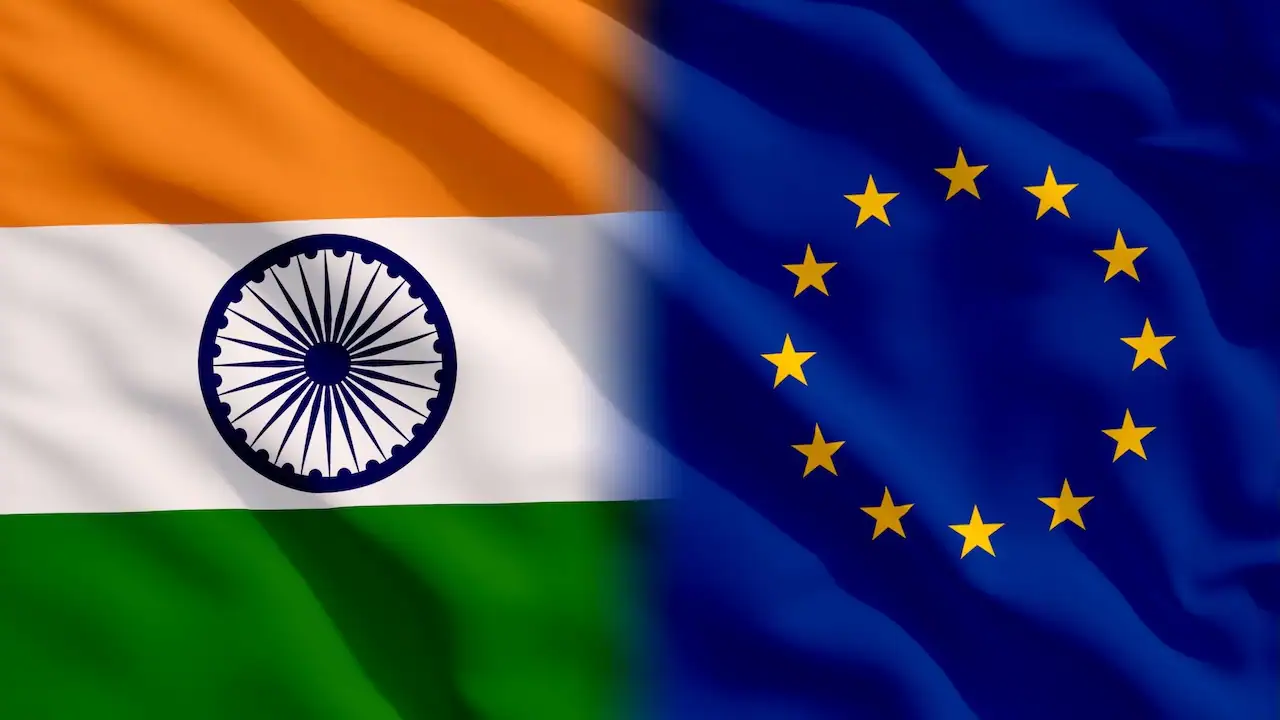
India-EU FTA soon with tariff cuts
NEW DELHI : India and the European Union (EU) are now considering completing the task in phases so that businesses on both sides can benefit from increased market access sooner, faced with the deadline of 2025-end to conclude negotiations on the proposed Free Trade Agreement (FTA).
The move is in the wake of the global trade uncertainty due to the tariff war triggered by the US. “Concluding the India-EU FTA in phases is under discussion between the two sides. Every option is being explored given the deadline,” a senior official said.
The negotiations in tranches will allow faster implementation of trade liberalisation in areas where there are the least differences. In the next phases, more contentious issues would be taken up.
A similar approach has been adopted with regard to the India-Australia pact earlier where both sides promptly concluded an Economic Cooperation and Trade Agreement (ECTA) in 2022. Now, negotiations are on to convert it into a broader trade agreement and sign the Comprehensive Economic Cooperation Agreement (CECA). With the US too, the discussions are currently going on for the first tranche of the Bilateral Trade Agreement (BTA).
India and the EU began negotiations on the FTA in June 2022. The FTA has 23 chapters or policy areas. The key chapters dealing with core trade issues are trade in goods and services, rules of origin, customs, technical barriers to trade, trade remedies and dispute settlements.
The agreement also has to cover areas like government procurement, intellectual property, competition, merger control and subsidies, transparency and good regulatory practices and sustainable food systems which can be taken up later.
The momentum on negotiations picked up after the visit of European Commission president Ursula von der Leyen with the EU college of commissioners to New Delhi in February. The deadline of 2025-end for FTA conclusion was set after the discussions between the top leaders of both sides during that visit.
After the visit India and EU concluded 10th round of negotiations in March in Brussels and 11th round is expected in early-May in Delhi.
In the 10th round for the first time sectoral sessions took place looking at specific industries such as automobiles and medical devices. The issues around tariffs and rules of origin in the industry sectors were also discussed.
The official also said that the FTA signed with the European Free Trade Association in March last year is expected to become operational soon. The national parliaments of all four EFTA members – Iceland, Liechtenstein, Norway, and Switzerland – have ratified it. Now, the pact is awaiting referendum in Swiss cantons (equivalent to states in India) before it is implemented.
“While the EU seeks tariff elimination on over 95% of its exports, India may be willing to open not more than 90% of its market,” according to a GTRI report. The key ask for India from EU in its negotiations is zero tariffs on labour intensive exports and greater access to the services market of 27-member grouping.
“Currently, India’s textile exports to the EU face tariffs in the range of 12-16%, making Indian products less competitive compared to exports from countries like Bangladesh and Vietnam, which enjoy preferential market access under EU trade agreements. If the deal goes through, it could provide a significant boost to India’s textile industry,” GTRI’s Ajay Srivastava said.
The EU is pushing for India to cut tariffs on cheese and skimmed milk powder, which India currently shields through high duties to protect its domestic dairy industry. Indian officials say that they would be unwilling to provide concessions in dairy in any of the FTAs.
European winemakers are pushing for greater access to the Indian market, where imported wines currently face a 150% tariff. The EU wants India to eliminate or significantly reduce these duties to 30-40% levels. India may like to match what it offered to Australia under the ECTA, where tariffs on Australian wines were slashed to 50% in 10 years, GTRI said.
European car manufacturers want India to cut import duties on completely built-up (CBU) vehicles to 10-20%, down from the current 70%. The EU already exports over $2 billion worth of automobiles and auto parts to India annually, with most arriving in completely knocked-down (CKD) form, which face a 15% tariff when assembled locally.

